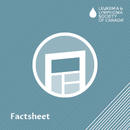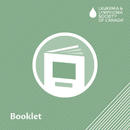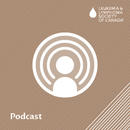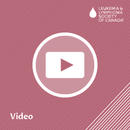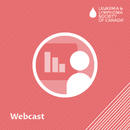You are not alone.
Know that the blood cancer community is here to support you every step of the way.
What happens next?
Telling others you have ALL
Talking to family and friends
Telling your children
Speaking with your employer
Taking charge of your care
Preparing for appointments
Understanding lab results
Asking for a second opinion
Managing your new reality
Coping with fear, anxiety and stress
Taking care of your body
Managing fatigue and cognitive challenges
Understanding insurance and organizing finances
Experiences of others with ALL
Resources on ALL
Read
Download fact sheets, guides and other resources to learn everything from the disease symptoms, statistics and treatment options.
Acute Lymphoblastic Leukemia
Learn about ALL diagnosis, overview of treatment options and understand what happens next.
Immunotherapy
Learn about your immune system, understand immunotherapy and how it works.
Blood and Marrow Stem Cell Transplant
Get an overview of what your blood and bone marrow do; understand the different types of stem cell transplants; learn who is eligible for a stem cell transplant; find out how to prepare for a stem cell transplant; learn about recovery.
Understanding clinical trials
Get an overview of clinical trials, understand them, how they are planned, evaluate benefits and risks of participating, address concerns and what to ask.
Understanding Genetics
Genetics plays an important role in understanding cancer and treatments for cancers. What is genetics and how is it involved in cancer?
Understanding and Managing Acute Lymphoblastic Leukemia (ALL)
A comprehensive guide to better understand ALL.
Types of blood cancer treatments
You or your loved one has been diagnosed with a type of blood cancer. Cancer treatment can be complex, with different types of treatment options available for some blood cancers. What are they and how do they work? This fact sheet will help you Learn about the different treatment options available, Understand each type of treatment and how it can help, Prepa…
Shared Decision Making: Discussion tool for people with a blood cancer
You or your loved one has been diagnosed with a type of blood cancer. You will be making important decisions with your healthcare team.
Listen
Play this podcast to get the latest scoop on this disease directly from an expert in the field of blood cancers.
Teenagers with Acute Lymphocytic Leukemia- A Conversation with Jeff Chow
Jeff Chow is an ALL (Acute Lymphocytic Leukemia) survivor who was diagnosed when he was 15 years old. He shares his story of receiving a cancer diagnosis as a teenager, and the support that he received during his experience.
Embracing fear and courage: Jeannette Castillo shares her Ph+ ALL experience
When she was diagnosed with Philadelphia positive acute ALL (PH+ ALL) in 2007, Jeanette Castillo leaned heavily on her healthcare background to cope. Having seen many people go through their own health challenges with a hopeful perspective, she adopted a similar attitude. Now 14 years post-stem cell transplant, Jeannette admits is was a long a scary road, bu…
Watch
Play the video to better understand the diagnosis, treatment and research progress for this disease.
CAR T-cell Therapy Video
Learn how our bodies can help fight illnesses, especially with the help of CAR T-Cell therapy.
Acute lymphoblastic leukemia (ALL): Treatment options, managing side effects and research advances | The National Leukemia Conference 2022
In this session, Dr. David Szwajcer provided an overview of ALL, discussed the current treatment options, how to minimize the impact and side effects of treatment, and how research is opening new treatment avenues.
Living and Feeling Your Best with Leukemia: How to Identify and Manage Side Effects at Home | The National Leukemia Conference 2022
Today’s treatments for leukemia are very effective in destroying cancer cells, but can also damage normal cells, leading to disruptive and uncomfortable side effects. In this presentation, Danielle Brandys, a leukemia nurse practitioner at the Princess Margaret Cancer Centre, provided an overview of the blood cancer treatments, possible side effects and ways…
Understanding Acute Lymphoblastic Leukemia (ALL)
This animated video helps you understand Acute Lymphoblastic Leukemia (ALL)
All resources
Access all fact sheets, guides, podcast, videos and other resources to learn everything from disease symptoms, statistics and treatment options.
Subtypes
Doctors classify acute lymphoblastic leukemia (ALL) into subtypes by using various tests. The subtype plays a large part in deciding the type of treatment.
Philadelphia-positive ALL (Ph+ ALL) - Factsheet available
Acute precursor B-cell leukemia/ Pre B-cell lymphoblastic leukemia
Acute B-lymphoblastic leukemia
Acute T-lymphoblastic leukemia
Natural killer (NK) cell leukemia














